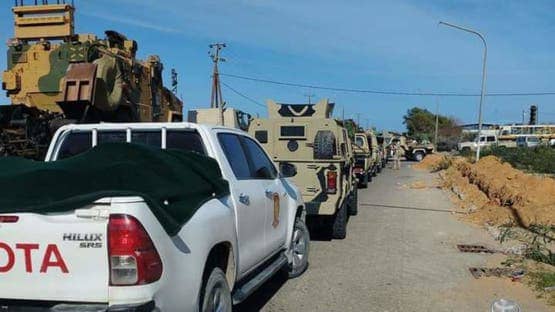Large Military Reinforcements Arrive in Tripoli.. International Warnings of Escalating Clashes

The Libyan capital, Tripoli, witnessed the arrival of large military reinforcements early this morning, Friday, July 11, coming from the cities of Zintan and Misrata, amid fears of armed clashes between competing militias, amidst escalating security tensions in recent weeks.
Social media circulated videos showing intensive military movements including armored convoys and tanks equipped with heavy weapons, heading from Zintan and Misrata towards Tripoli. Local sources confirmed that these reinforcements are aimed at supporting militias loyal to the Prime Minister of the Government of National Unity, Abdul Hamid Dbeibah, in preparation for a possible attack on the "Deterrence and Counterterrorism Force," one of the prominent militias opposing his government.
These movements came days after Dbeibah's statement in which he threatened what he called "militias operating outside the law," affirming his intention to "assert state authority over airports, seaports, and prisons." These statements were understood as a declaration of war against the "Deterrence Force," which controls the "Mitiga Complex" housing the civilian airport, airbase, military hospital, and the "Mitiga Rehabilitation and Reform Facility" prison.
The heavy military presence in the streets of Tripoli and its surroundings has raised fears among the residents of renewed clashes, as well as concerns of the international community. The United Nations and the European Union missions in Libya warned of a "deterioration of the security situation" in the capital, emphasizing that the current escalation could undermine the fragile ceasefire agreement between the militias.
Tripoli has been experiencing escalating security tensions for months, especially after the armed confrontations that led to militias loyal to Dbeibah taking control of areas previously held by the "Stability Support Apparatus," following the assassination of its commander, Abdelghani al-Kikli.
This military escalation comes at a time when the Libyan arena is still suffering from a severe political deadlock and a breakdown in dialogue pathways between the main parties, despite the international efforts made to push them towards negotiated solutions.